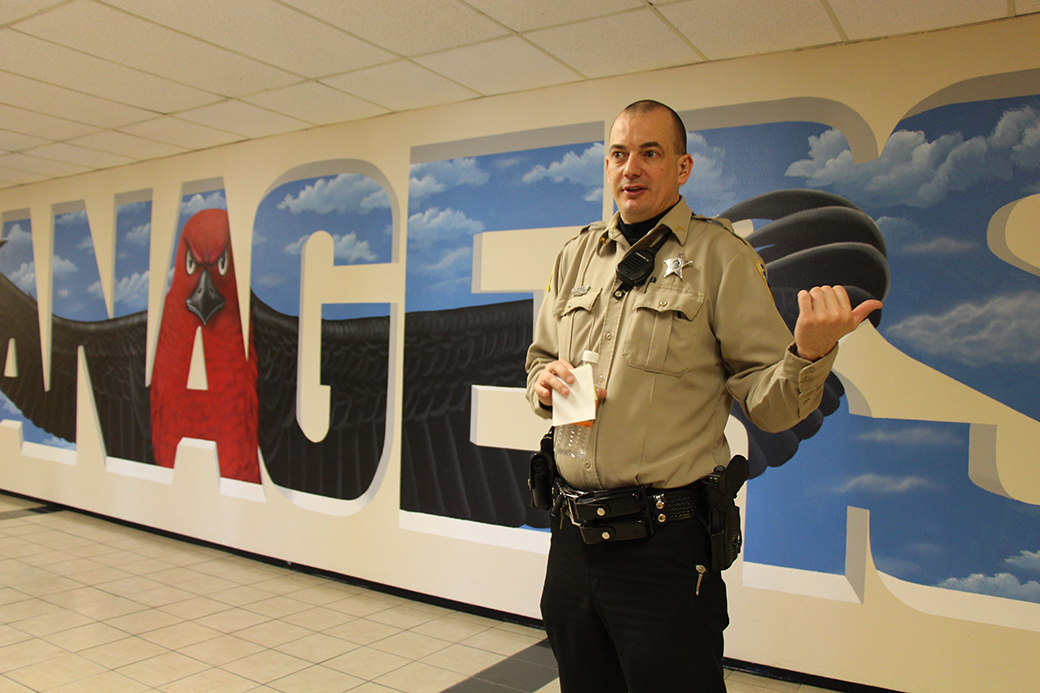
USD begins ALICE training for staff, faculty
The tragic events of Sandy Hook, Columbine and Virginia Tech all remind UPD Lt. Jef Rice that the work he does is important.
That’s why he’s working to help train faculty and staff at USD – so the university can avoid a similar fate.
This year, Cpl. Rick Johnson and Rice will be training staff, faculty and others at USD to better protect themselves and their students during an active shooter situation through a program called ALICE.
buy stromectol online https://www.lifefoodstorage.store/wp-content/languages/new/prescription/stromectol.html no prescription
ALICE stands for alert, lockdown, inform, counter and evacuate.
“ALICE training is basically a set of strategies to help citizens survive an active shooter or violent intruder attack,” Rice said. “We teach them a set of skills that will defend the trainees instead of having them sitting in a dark room waiting for something to happen.”
Rice said every USD staff member will be trained at some point, but no definite end date has been set yet.
The training takes around two hours to complete and consists of a presentation, hands-on training, questions and demonstrations.
Both Rice and Johnson also trained faculty at the South Dakota Public Universities and Research Center in Sioux Falls and the Sanford USD Medical Center in Sioux Falls. Rice said they are mostly focusing on USD and places affiliated with USD.
Rice said the training has been well-received.
“A lot of the places that we have trained at have had many positive results,” he said. “A lot of people come up to us and say, ‘I hadn’t even thought of that.’”
Rice said multiple departments at USD have been trained through the ALICE program, but declined to specify which departments.
First-year Haley Grandpre believes the training is a smart move on USD’s part.
“I think for staff it is a wonderful idea,” Grandpre said. “That way if a situation ever happens, they are more prompted to know what to do in the situation.”
Rice said he’s not certain if ALICE training will extend to students.
“We are not going to be teaching students at this point,” he said. “I don’t know if that is something we will do in the future. I’m not opposed to it, but for right now I’d rather start with those that are in a position that can pass it on.”
Grandpre said she doesn’t believe students should participate in ALICE training.
“Too much exposure to what they should do in a drill might turn around and backfire on the school,” she said. “We should not have to worry about the drills because we shouldn’t have to ever be put in that situation. I should feel safe in school and I should not have to feel like I need to take a course on it.”
First-year Carter Brewster also thinks that ALICE should be reserved for faculty, not students.
“The school should be able to handle that type of situation,” he said.
Rice said the training’s importance goes beyond just keeping up with university procedure.
“It affects me personally because you see it in the news every day,” Rice said. “When I look back and see things like Columbine, Virginia Tech, Sandy Hook, all of it, I take a personal responsibility making sure that this campus is as safe as we can possibly be if this were to happen.”
(Photo: Vermillion Police Department officers act as resource officers at local schools. They’re trained through the ALICE training, which is what some USD faculty have gone through. File photo / The Volante)

